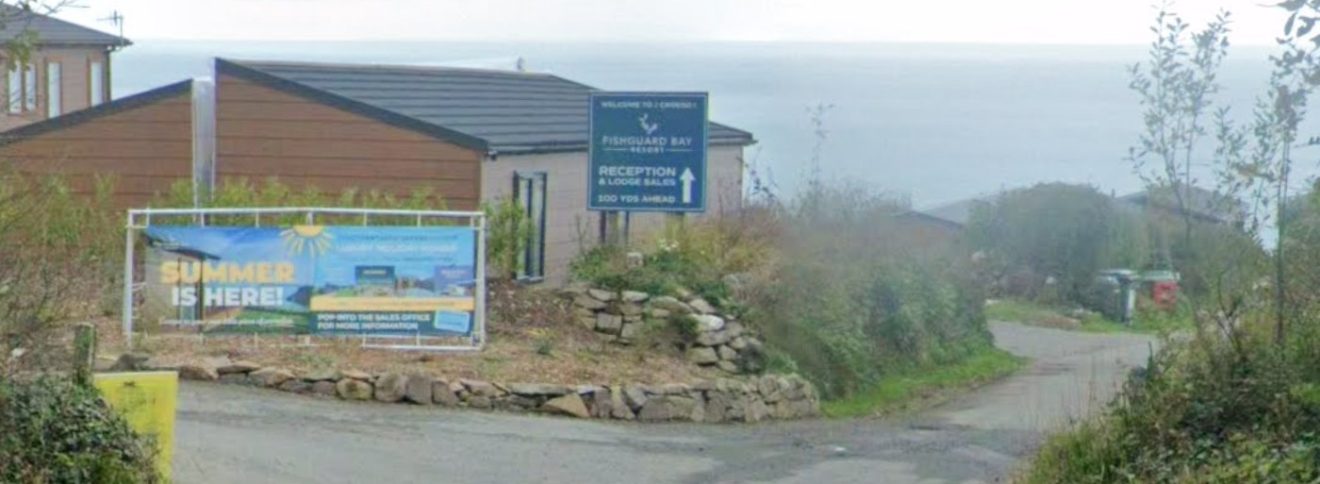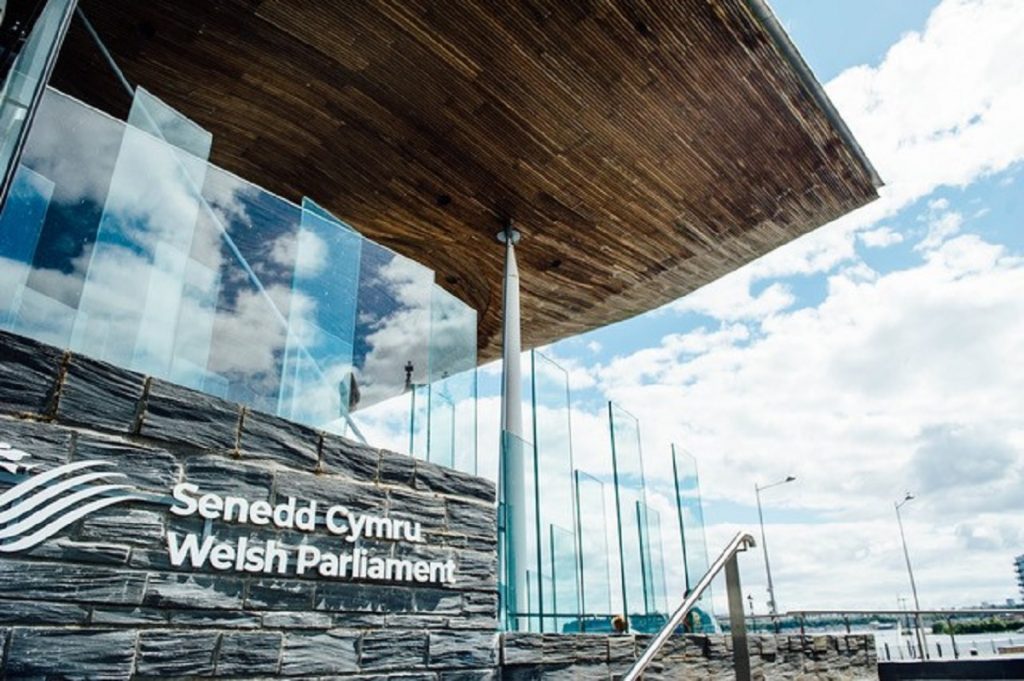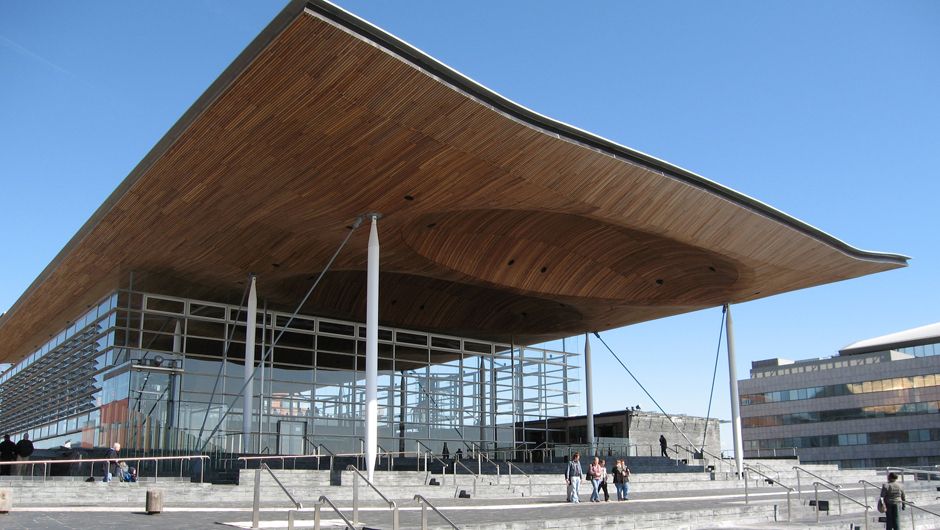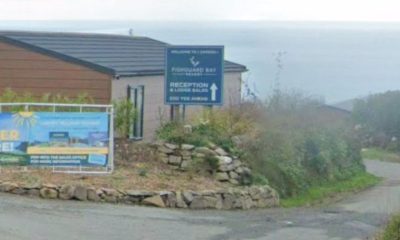News
SOME pubs can reopen on July 13

PUBS, cafes and restaurants in Wales can re-open on July 13.
Or, at least, some can.
In a move heavily trailed by the First Minister at his Monday press conference (June 29), pubs, cafes, and restaurants which can serve customers in outdoor spaces they own or pub gardens will be allowed to open for customers on July 13.
The Welsh Government has not announced when indoor trade will be allowed to open.
OUTDOOR OPENING ONLY
The decision follows a torrent of criticism directed at the Welsh Government over its failure to provide a roadmap for reopening the hospitality trade. The industry is linked intimately with Wales’ tourist sector.
That failure was condemned by pub and restaurant owners and opposition spokespersons as evidence of dither, delay, and doing things differently for their own sakes.
Every other UK administration has either already set a clear route out for pubs and restaurants or already reopened them.
Speaking on Monday, the First Minister said: “I hope that [ongoing discussions] are productive and profitable about how pubs and restaurants can safely reopen in the outdoors. And with the mitigating measures that will need to be in place in order to allow that to happen safely.”
The First Minister continued: “We’re getting to the point now where we have a definitive list of the measures that the sector is proposing. And we will need to put that to the Chief Medical Officer, and those who advise us on the science of coronavirus to get their view as to whether or not the proposals amount to a safe reopening that could be recommended.”
The treatment of the consultation with the hospitality industry, suggests the Welsh Government did not join the dots to connect cafes, pubs, and restaurants importance to Wales’ tourism and foodservice industries.
The First Minister said on Monday ‘a rapid review’ would take place over ‘the next couple of days’ with the Government scientific and medical advisors.
However, guidance released without fanfare on the Welsh Government website the same day set out the plan to reopen pubs and restaurants but allow only outdoor service.
COUNCILS LOOK TO FUTURE
Several surveys of those planning ‘staycations’ revealed a majority would only travel to areas where pubs and restaurants were open.
With Wales’ beleaguered coastal and rural economies facing a double whammy of losing over half the tourist season and then being out-competed for tourism pounds by other parts of the UK, something had to give.
With a clear eye on the future of the sector, several local authorities – including Pembrokeshire – have opened consultations on ‘café culture’
Pembrokeshire County Council Cabinet Member for Licensing, Phil Baker, said: “Given the Covid-19 regulations it is likely many more establishments will be considering the possibilities of utilising outdoor spaces.
“We would urge those running cafes, public houses, restaurants etc to think about how Café Culture could work for their premises and to get in touch so we can understand the demand and get the necessary plans in place.”
Following the Welsh Government’s announcement, it is possible – if not likely – the Council will reconsider the closing date for applications to the scheme.
WG’s APPROACH ‘PROBLEMATIC’ AND ‘FOOT-DRAGGING’
Helen Mary Jones MS, Plaid Cymru’s Shadow Economy Minister, responded to the announcement on Thursday morning: “While the news that we have a date now for outdoor opening is welcome, a timetable could have been shared with the sector earlier. Giving pubs, restaurants, and cafes less than two weeks to prepare for re-opening shows how problematic the Welsh Government’s current ad-hoc approach is to easing restrictions.
“The Welsh Government needs to be planning much further ahead and making clear which restrictions are expected to be lifted in the weeks and months ahead.”
Ms Jones continued: “The Government must work with local authorities to urgently overcome the planning and licensing challenges that need to be addressed, enabling spaces to be created in our towns and villages to increase the space available for outside opening, and to work with the sector on a timetabled plan for indoor opening.
“Some businesses may not be able to open for some months to come. They will need longer term support, and they need to know from the Welsh and UK Governments now what that support will look like: we can’t afford to lose them.”
The Conservatives’ Shadow Minister for Covid Recovery – Darren Millar MS – commented: “This announcement will be welcome news for some businesses in the hospitality sector across Wales but without a relaxation of the two-metre social distancing rules and the ability to use indoor spaces, it still won’t be viable for many businesses.
“Unfortunately, the Labour-led Welsh Government’s foot dragging has come too late for some businesses which have already laid off staff and closed permanently due to the prolonged uncertainty and I suspect that without a clear timetable for indoor services others will too.”
He added: “The Labour-led administration should also consider bringing forward the days on which it relaxes its restrictions to Fridays. Too many weekends have already been lost due to Ministers always introducing changes to restrictions on Mondays causing people to lose the benefit of an important weekend of trade.”
Business
Scheme to upgrade Dinas Cross holiday park withdrawn

PLANS to create a ‘five-star resort’ in one of Wales’s most popular holiday locations have been withdrawn.
In an application submitted to Pembrokeshire Coast National Park, Chester-based Boutique Resorts Ltd sought permission to relinquish 50 mixed touring pitches (caravans and tents) at Fishguard Bay Resort, Dinas Cross, replacing them with “36 high quality timber-effect holiday lodges”.
The application, recommended for refusal at the April 24 meeting of the national park’s development management committee, also included an increase in the site area of the approved park, a new entrance, a new reception lodge, staff and visitor parking area, with extensive environmental improvements.
The site, established in the 1950s, currently has planning permission for 50 static caravans and 50 mixed touring units, and it is intended 23 of the proposed lodges to be sited at the entrance, with a further 13 throughout the site.
Despite the proposals seeking a reduction in outright numbers, the applicants say the scheme would see an increase in the number of full and part-time jobs associated with the resort, from 29 to 62 jobs.
A previous application was refused in 2019, mainly on visual impact, ecological impact and highway impact, and the applicant has sought to address the issues raised by that refusal, a supporting statement says.
It adds: “The applicant purchased the site in 2014 with the intention to upgrade the site into a five-star luxury resort. This is very much still the applicant’s intention and whilst he has replaced some existing static caravans with luxury lodges, he also seeks to replace the touring caravans and tents with luxury lodges too.
“The resort is now considered one of the most desirable holiday parks on the Pembrokeshire Coast which is evident on the number of holidaymakers who return to the resort year on year. Such is demand for luxury lodges on the site, the applicant requires additional units.
“The applicant now wishes to move the resort further by replacing the mixed touring pitches with luxury lodges but also provide a much-needed new entrance into the resort.”
Objections to the scheme were received from the National Trust, the national park’s strategic policy and ecologist, and the South Wales Trunk Road Agency, and 12 members of the public, along with one letter of support.
The application was recommended for refusal for reasons including it was “likely to have a significant detrimental impact on the special qualities of the National Park by intensifying the visual impact and intrusion of a large static caravan site within the extensive coastal views of this section of the National Park,” it would represent an intensification of the site, and was likely to “have an unacceptable impact on neighbouring residential amenity through increased noise and traffic movements”.
The application, listed for consideration by park planners next week, has since been withdrawn.
News
First step towards council tax and business rate reform

MAJOR reforms to council tax and business rates have cleared the first hurdle in the Senedd.
MSs backed the general principles of the local government finance bill, which would introduce a five-year cycle for council tax revaluations from 2030.
The bill would lay much of the groundwork for Welsh Government proposals to redesign council tax, with current bands based on property values from 2003.
It would also increase the frequency of business rates revaluations from five to three years.
Rebecca Evans told the Senedd the bill forms a vital part of the Welsh Government’s wider programme of local tax reform.
Wales’ finance minister explained the bill would enable ministers to modify business rate relief exemptions and the multiplier to support policy priorities.
John Griffiths outlined the local government committee’s stage-one report recommendations aimed at improving the bill and guarding against unintended consequences for taxpayers.
Mr Griffiths explained that the bill provides a framework for future policy changes to be made by the Welsh Government via secondary legislation.
The Labour MS, who represents Newport East, said the committee heard concerns that this limits opportunity for public engagement and scrutiny by the Senedd.
Welcoming the Welsh Government’s commitment to retaining the single-person council tax discount at 25%, he highlighted wide-ranging powers in the bill over vital reduction schemes.
In terms of business rates, the committee chair said MSs heard broad support for a move to three-yearly revaluations, which he described as a reasonable, proportionate cycle.
Peredur Owen Griffiths, who chairs the finance committee, backed the bill’s key aim to create a fairer, more flexible system.
The South Wales East MS welcomed reassurances from the Welsh Government that the intention of council tax reforms is not to raise more revenue.
“Given the regressive nature of council tax, we support the aim to make it fairer without affecting the tax base,” he said.
Plaid Cymru’s finance secretary said the proposed powers will reduce the Welsh Government’s reliance on UK bills to make changes.
Alun Davies, a Labour backbencher, warned that delegated powers in the bill risk diminishing the role of the Senedd.
Sam Rowlands, the Tories’ shadow local government secretary, raised concerns about the bill putting more power in the hands of the Welsh Government rather than councils.
He warned the bill is a stepping stone towards higher taxes through the back door, saying: “This bill in and of itself does not necessarily do that but it certainly enables future changes.”
The former leader of Conwy council, who represents North Wales in the Senedd, called for reforms to the formula used to allocate funding to Wales’ 22 councils.
Raising concerns about digital exclusion, Mr Rowlands opposed a provision in the bill which would remove a duty to publish council tax notices in local newspapers.
He said: “We believe it’s a really important part of the democratic process in local government, especially in relation to transparency.”
Backing a revaluation of all 1.5 million properties in Wales, Labour MS Mike Hedges described council tax as fundamentally unfair.
He said: “Someone living in a property worth £100,000 pays around five times as much council tax relative to the property value as someone living in a property worth £1m.”
Mr Hedges, who represents Swansea East, also opposed the removal of the duty to provide council tax information in newspapers.
On business rates, he said: “I’ve always supported the returning of them to local authorities. We don’t need an all-Wales system; let each local authority set its own business rates.”
Ms Evans told the chamber she intends to make a statement on the next steps for council tax reform before the summer recess.
The Senedd agreed the general principles of the reforms without objection, and the bill now moves to stage two which will see MSs consider detailed amendments.
News
Senedd backing for major infrastructure approval changes

THE SENEDD agreed reforms aimed at streamlining the consenting process for significant infrastructure projects in Wales.
MSs passed the infrastructure bill, which will establish a unified process, known as infrastructure consent, for major on and offshore projects.
Infrastructure consent will replace existing procedures for energy, transport, waste, water and gas projects above a certain size or capacity threshold.
Julie James, Wales’ housing, local government and planning secretary, argued the bill will introduce a modern and simplified process.
She said the bill will play an important part in moving towards net-zero emissions by 2050 by enabling consent for renewable energy projects in a timely but robust manner.
She told MSs: “Not only will it improve the competitiveness of Wales as an attractive place for investment and jobs, it will also empower local communities and other key stakeholders.”
Ms James said it is a “process bill” with much of the detail to follow in secondary legislation and a significant amount of work ahead to ensure a smooth implementation process.
She told the chamber that secondary legislation will ensure the infrastructure consenting process operates effectively, efficiently and with maximum engagement.
She explained that two consultation papers will be issued by late May, with the first focused on pre-application consultation processes and the second centred on fees.
A third and final consultation paper will follow this year outlining the whole new process.
Janet Finch-Saunders, the Conservatives’ shadow secretary, described the reforms as hollow and lacking in fundamental details.
She argued this is in complete conflict with the bill’s core aims of delivering a streamlined process and empowering communities to engage.
Ms Finch-Saunders warned that the bill is missing a vast amount of details, including on how open-floor hearings will be triggered and time limits for making decisions.
She said: “It is apparent to any reasonable person that this bill does not represent anywhere near what it promises to do, and that is a streamlined and unified process.
“The reality is that so much information is omitted that we do not know how these processes are going to work in reality.”
The Aberconwy MS added: “Clearly, the legislation is not as I believe it should be. We do not believe that it delivers a robust process for Wales.”
Delyth Jewell stressed the importance of striking the right balance between tackling the climate emergency and safeguarding the natural world.
Plaid Cymru’s deputy leader said planning processes must be more accessible to the public.
“Too often communities are left feeling disenfranchised and marginalised when decisions about infrastructure are made without their say,” she warned.
Calling for a coal-free future for Wales, Ms Jewell reiterated her party’s calls for coal to be removed from the list of significant infrastructure projects in the bill.
The South Wales East MS said: “We will keep pushing for a number of changes in regulations. But passing the buck and allowing this bill to fail would be a retrograde step.
“Let this be the first step in a journey towards democratising our planning process. There’s an awful lot more that we need to do, but it can at least start here.”
Ms James reiterated that many details were deliberately not included “on the face of the bill”.
She said: “If you were to put that into primary legislation, it would become out of date so fast that it wouldn’t make the end of the year.
“So, it is very important that we put those things in secondary legislation.”
Before the debate could be held, the King’s consent had to be sought because the bill could impact the Royal Family’s interests, such as the Crown Estate.
MSs agreed the stage-four vote on the final text of the bill, with 36 in favour and 15 against.
The infrastructure bill now enters “post stage four”, a four-week period during which it could be challenged by the UK Government but it is expected to move on to Royal Assent.
-

 Business2 days ago
Business2 days agoBluestone National Park Resort payments expected to end
-

 Community4 days ago
Community4 days agoThe Harbourmaster: Special rail excursion draws crowds to Milford Haven
-

 News3 days ago
News3 days agoDragon LNG ‘monitoring’ scrap car blaze in Waterston
-

 News4 days ago
News4 days agoSearch for Luke, 19, reported missing in the Pembroke Dock area, continuing
-

 News21 hours ago
News21 hours agoSearch for missing teenager Luke continues at Pembroke Dock
-

 News5 days ago
News5 days agoMajor search in the area of The Cleddau Bridge and Hobbs Point
-

 Crime2 days ago
Crime2 days agoEstate agents admit health and safety failings following fatal market incident
-

 News1 day ago
News1 day agoMan jailed after scarring police officer in Narberth altercation



































